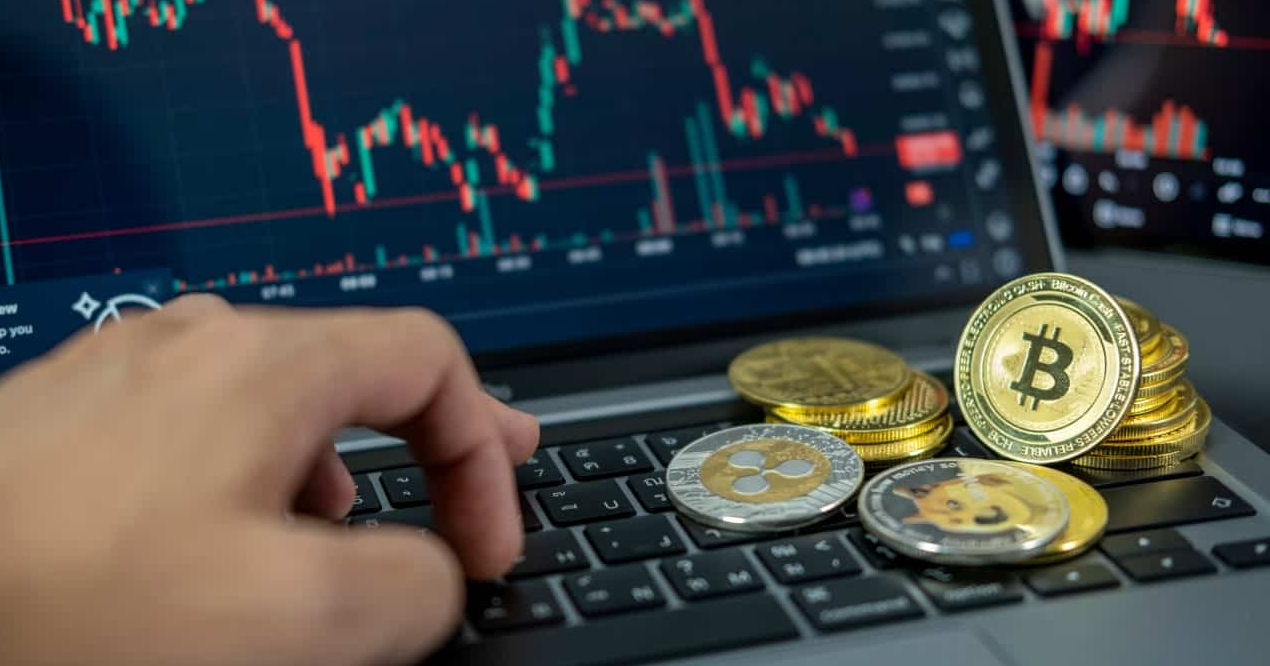Bitcoin news always gets a lot of attention throughout the world since the first cryptocurrency is changing the way money works and how technology works. Since Satoshi Nakamoto first created Bitcoin in 2009, it has gone from being a fringe tech experiment to a widely used financial instrument. It has become a symbol of digital sovereignty and a replacement for traditional fiat currencies because it is decentralized, has a limited supply, and uses blockchain technology. This article provides detailed insights into the latest Bitcoin news, examining how the market operates, how regulations are evolving, and how technology is advancing, and identifying the key individuals who will influence the future of the cryptocurrency ecosystem.
Bitcoin’s Market and Adoption
Bitcoin is still the most important cryptocurrency in 2025. Many investors view Bitcoin as the digital gold standard, providing protection against inflation and economic turmoil. Various macroeconomic factors influence the market, including interest rate policies from central banks worldwide, inflation trends, and geopolitical issues that reduce investor confidence. These factors affect the price of Bitcoin, which is volatile and presents both chances and hazards for traders and institutional investors. Institutional acceptance is speeding up, with big firms and funds adding Bitcoin to their portfolios. Many well-known companies, like Tesla and MicroStrategy, have put a lot of money from their treasury reserves into Bitcoin.
This action shows that they are becoming more confident in its long-term value. At the same time, cryptocurrency exchanges like Binance, Coinbase, and Kraken make it easy for anyone to trade a lot of Bitcoin, which keeps the market liquid and efficient. Bitcoin derivatives markets on sites like the Chicago Mercantile Exchange (CME) provide investors access to advanced tools like futures and options that let them hedge their positions or bet on price movements without actually owning the commodity. These financial solutions make Bitcoin more like a regular currency, connecting traditional finance with decentralized technologies.
Global Bitcoin Regulatory Landscape
Regulatory frameworks are still one of the most important things that affect Bitcoin’s growth around the world. Governments and regulatory organizations are still trying to figure out how to strike a balance between innovation, protecting investors, and keeping the economy stable. The Markets in Crypto-Assets (MiCA) law is planned to make rules about how to use, store, and provide services for cryptocurrencies more consistent in places like the European Union. These changes will make the legal landscape clearer for both businesses and customers.
 The Securities and Exchange Commission (SEC) and the Commodity Futures Trading Commission (CFTC) are two of the most important institutions in the US that help determine Bitcoin’s legal status. The SEC is mostly concerned with securities regulation and protecting investors, whereas the CFTC sees Bitcoin mostly as a commodity. This alters the permissible financial products and trading methods. Countries like El Salvador have made news by making Bitcoin legal tender. This move serves as a distinctive demonstration of the potential applications of cryptocurrencies within a national economy. This action has started a worldwide discussion about what it means for monetary sovereignty, financial inclusion, and regulatory control.
The Securities and Exchange Commission (SEC) and the Commodity Futures Trading Commission (CFTC) are two of the most important institutions in the US that help determine Bitcoin’s legal status. The SEC is mostly concerned with securities regulation and protecting investors, whereas the CFTC sees Bitcoin mostly as a commodity. This alters the permissible financial products and trading methods. Countries like El Salvador have made news by making Bitcoin legal tender. This move serves as a distinctive demonstration of the potential applications of cryptocurrencies within a national economy. This action has started a worldwide discussion about what it means for monetary sovereignty, financial inclusion, and regulatory control.
ChatGPT said:
The Bitcoin network is strong because it is decentralized and constantly improving its technology to be more secure, scalable, and useful. The Taproot upgrade was a big step forward because it complicated smart contracts and made transactions more private. Taproot enhances the functionality of multi-signature wallets and enables the development of more robust decentralized finance (DeFi) applications on Bitcoin. The Lightning Network is another game-changing invention. We created this second-layer protocol to address Bitcoin’s scalability issues.
The Lightning Network makes it easier to use Bitcoin for everyday purchases and minor transfers by allowing quick, cheap microtransactions through off-chain payment channels. In the past, on-chain transaction fees and confirmation delays made these types of transactions less useful. Mining technology also changes quickly. Companies are making hardware that uses less energy to boost hash rates while having less of an effect on the environment. More and more people are using renewable energy sources like solar and hydroelectric electricity to help with sustainable mining. Mining pools like Foundry USA and Antpool control the hash rate distribution, which shows how competitive, global, and cooperative it is to keep the Bitcoin blockchain safe.
ChatGPT said:
Visionary leaders, developers, and investors shape the Bitcoin ecosystem. Their actions and words often change how people feel about the market and how they see it. Michael Saylor, the former CEO of MicroStrategy, became a well-known supporter by pushing Bitcoin as a treasury asset and urging companies in many fields to use it. Cathie Wood of ARK Invest supports Bitcoin’s ability to change the way money works because her company owns a lot of Bitcoin and does research on it.

On the other hand, established finance critics like Warren Buffett have warned investors about the perils of the new asset class by pointing out Bitcoin’s volatility and speculative nature. The Bitcoin Conference in Miami and the Consensus event in New York are two important annual conferences where developers, regulators, and investors can talk and meet each other. These meetings often reveal new protocol changes, policy changes, and market forecasts, which can create excitement that moves markets and sparks new ideas.
ChatGPT said:
Bitcoin is both a basic part of the larger cryptocurrency ecosystem and something that is changing. Ethereum and other altcoins focus on decentralized apps and smart contract platforms, but Bitcoin is still the best place to store money and protect yourself from traditional financial instability. The fact that Bitcoin is becoming more and more connected to decentralized finance protocols, custodial services, and regulated investment vehicles shows that it is becoming more legitimate and widely accepted.
Exchange-traded funds (ETFs) and Bitcoin trusts let investors have exposure to the cryptocurrency without having to own it directly, which makes it easier for both institutional and ordinary investors to get involved. These financial products also come under regulatory scrutiny, which changes the compliance picture.
Final thoughts
Linking to other articles on the same site, like “Bitcoin Mining Explained,” “Understanding Cryptocurrency Regulations,” and “What Is the Lightning Network?” can provide visitors with a comprehensive understanding. These articles give more context, which makes the topics more relevant and keeps users interested. Citing reliable sources like Bitcoin.org, the U.S. Securities and Exchange Commission (SEC), CoinDesk, and blockchain analytics sites like Glassnode adds credibility and gives readers trusted ways to learn more.

